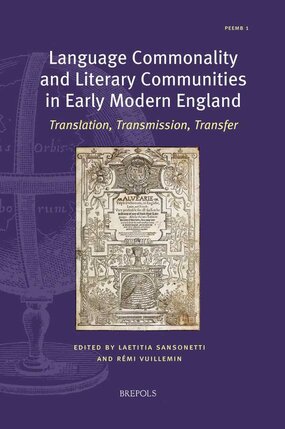The volume focuses on the role of translation and lexical borrowing in the expansion of specific English lexicons (erudite, technical, or artisanal) as evidenced in printed texts from the early modern period. It considers how language shapes identity in social, religious, philosophical, artistic and literary contexts, and is in turn shaped by claims of social, religious, philosophical, artistic and literary identity.
Summary
In the early modern period, the humanist practice of translation of sacred as well as secular texts created new readerships in the vernacular for authoritative texts, religious or classical. As the circulation of languages within Europe reshuffled hierarchies between classical languages and vernacular tongues, transmission via translation was not only vertical, but also horizontal, and the contacts between European languages enabled the expansion of local lexicons from sources other than Latin or Greek.
This volume focuses on the role of translation and lexical borrowing in the expansion of specific English lexicons (erudite, technical, or artisanal) as evidenced in printed texts from the early modern period. It considers how language shapes identity in social, religious, philosophical, artistic, and literary contexts, and is in turn shaped by claims of social, religious, philosophical, artistic, and literary identity.
Table of Contents
See website: https://www.brepols.net/products/IS-9782503598147-1
